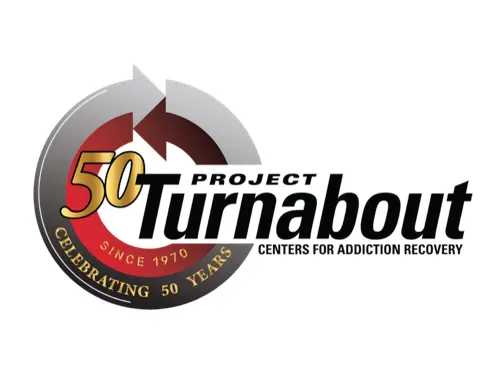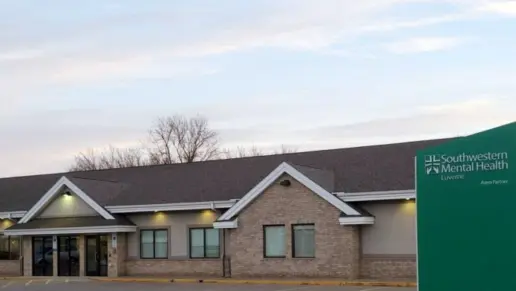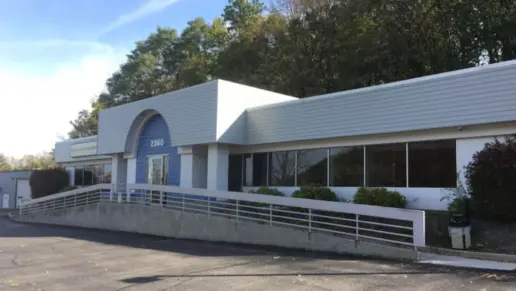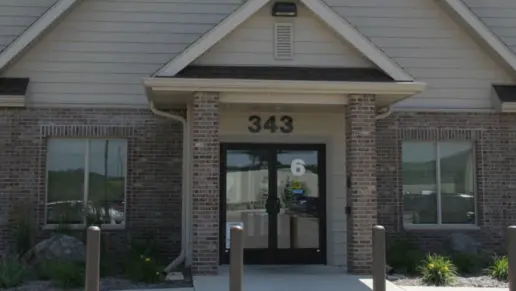I would not recommend this place. I called before hand and asked if they’d give me my soboxone when I started to withdraw any they told me yes. Well once I got there they refused to give me my soboxone and told me I shouldn’t want to get addicted to another chemical. Tha ...
About Project Turnabout
Project Turnabout is a drug and alcohol recovery center in Granite Falls, Minnesota. They provide a full continuum of care, beginning with detox services and following through to post treatment support. Their residential facilities are in a private setting surrounded by trees and offer modern amenities.
Project Turnabout provides inpatient and outpatient care for men and women. Each program is gender specific and specialized for the unique challenges individual clients may face on the path to recovery.
The residential program focuses on behavioral therapy, empowerment, and community building. Clients work with their care team throughout treatment to build a structured treatment schedule that meets their specific needs. In addition, programs utilize individual, group, and family therapy, spiritual healing, and mental and physical fitness.
Most of the semi-private bedrooms house three clients at a time. The facilities are staffed with medical and support teams 24 hours a day to ensure safety and provide aid as needed. Support staff includes licensed nurses, mental health professionals, addiction counselors, certified dieticians and fitness trainers, and chaplains.
Project Turnabout’s outpatient services are available to clients 16 and older. Clients visit the campus at scheduled intervals during the week to receive therapy and counseling on an individual, family, and group basis. A counselor works closely with each client to guide them through the process and support recovery.
Outpatient sessions can meet once or twice a week for three hour sessions for up to seven weeks. IOP meets three times a week, three hours a session, for nine weeks.
Mental illnesses like depression, anxiety, and bipolar disorder are often present alongside substance use disorders. Project Turnabout’s co-occurring disorder treatment integrates mental health services into a client’s treatment plan to provide greater stability and reduce relapse risk. They use DHHS approved methods and techniques alongside traditional and holistic addiction support services.
Project Turnabout is certified by the Commission on the Accreditation of Rehab Facilities and is a member of the Minnesota Alliance of Rural Addiction Treatment Programs.
Latest Reviews
Rehab Score
Gallery
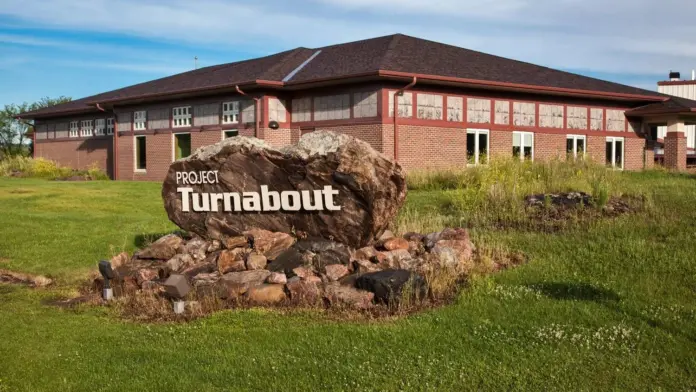
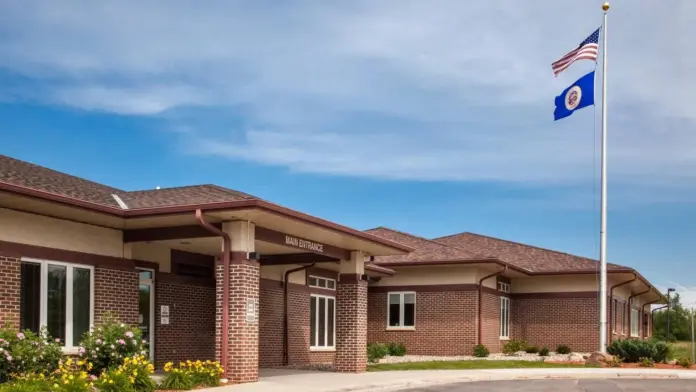
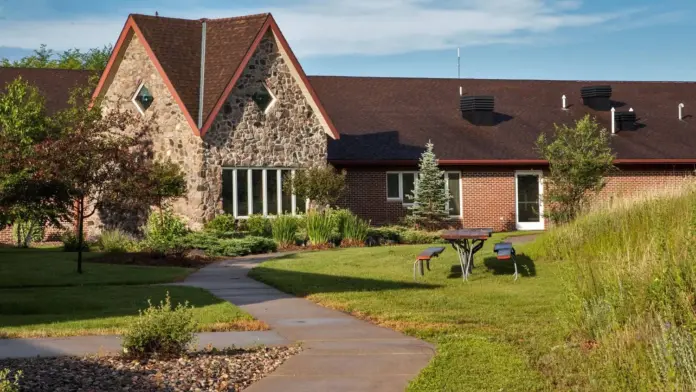
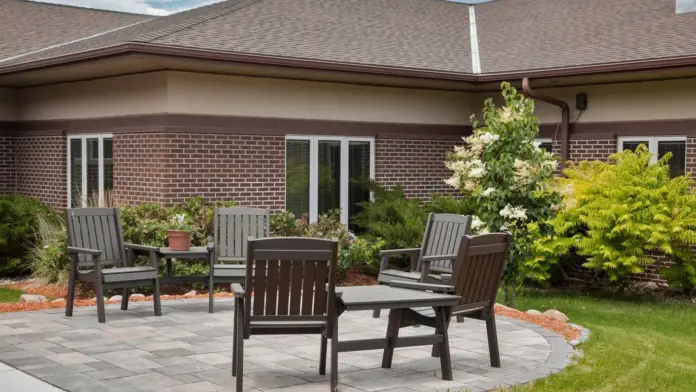
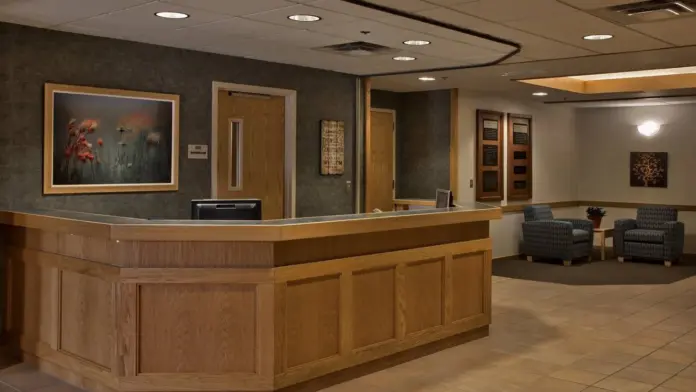
Location
Other Forms of Payment
Medicaid is a state based program that helps lower-income individuals and families pay for healthcare. Medicaid covers addiction treatment so those enrolled can use their coverage to pay for rehab. When a program accepts Medicaid the client often pays very little or nothing out of their own pocket.
Private insurance refers to any kind of healthcare coverage that isn't from the state or federal government. This includes individual and family plans offered by an employer or purchased from the Insurance Marketplace. Every plan will have different requirements and out of pocket costs so be sure to get the full details before you start treatment.
Self-pay involves paying for treatment out of your own pocket. You can use savings or credit, get a personal loan, or receive help from family and friends to fund your treatment. If you don't have insurance or your insurance plan doesn't cover a specific program, self-pay can help ensure you still get the care you need.
Financial aid can take many forms. Centers may have grants or scholarships available to clients who meet eligibility requirements. Programs that receive SAMHSA grants may have financial aid available for those who need treatment as well. Grants and scholarships can help you pai for treatment without having to repay.
Addiction Treatments
Levels of Care
Treatments
The goal of treatment for alcoholism is abstinence. Those with poor social support, poor motivation, or psychiatric disorders tend to relapse within a few years of treatment. For these people, success is measured by longer periods of abstinence, reduced use of alcohol, better health, and improved social functioning. Recovery and Maintenance are usually based on 12 step programs and AA meetings.
Drug addiction is defined as an inability to stop using drugs even though it causes negative consequences in your life. Drug rehab in Minnesota provides treatment for drug addiction in a variety of settings including inpatient treatment and outpatient treatment.
A combined mental health and substance abuse rehab has the staff and resources available to handle individuals with both mental health and substance abuse issues. It can be challenging to determine where a specific symptom stems from (a mental health issue or an issue related to substance abuse), so mental health and substance abuse professionals are helpful in detangling symptoms and keeping treatment on track.
Opioid rehabs specialize in supporting those recovering from opioid addiction. They treat those suffering from addiction to illegal opioids like heroin, as well as prescription drugs like oxycodone. These centers typically combine both physical as well as mental and emotional support to help stop addiction. Physical support often includes medical detox and subsequent medical support (including medication), and mental support includes in-depth therapy to address the underlying causes of addiction.
Programs


Clinical Services
Cognitive Behavioral Therapy (CBT) is a therapy modality that focuses on the relationship between one's thoughts, feelings, and behaviors. It is used to establish and allow for healthy responses to thoughts and feelings (instead of unhealthy responses, like using drugs or alcohol). CBT has been proven effective for recovering addicts of all kinds, and is used to strengthen a patient's own self-awareness and ability to self-regulate. CBT allows individuals to monitor their own emotional state, become more adept at communicating with others, and manage stress without needing to engage in substance abuse.
Dialectical Behavior Therapy (DBT) is a modified form of Cognitive Behavioral Therapy (CBT), a treatment designed to help people understand and ultimately affect the relationship between their thoughts, feelings, and behaviors. DBT is often used for individuals who struggle with self-harm behaviors, such as self-mutilation (cutting) and suicidal thoughts, urges, or attempts. It has been proven clinically effective for those who struggle with out-of-control emotions and mental health illnesses like Borderline Personality Disorder.
Family Recovery Program provides valuable education on alcohol, drug and problem gambling addictions for the family members of patients. This fundamental daytime program offers families the opportunity to interact and connect with other families experiencing the same or similar issues. All while expanding their education on their loved one’s addictive illness, providing support. The families learn the importance of their own self-care and honest, open communication.
Group therapy is any therapeutic work that happens in a group (not one-on-one). There are a number of different group therapy modalities, including support groups, experiential therapy, psycho-education, and more. Group therapy involves treatment as well as processing interaction between group members.
In individual therapy, a patient meets one-on-one with a trained psychologist or counselor. Therapy is a pivotal part of effective substance abuse treatment, as it often covers root causes of addiction, including challenges faced by the patient in their social, family, and work/school life.
Life skills trainings involve all the skills a person must have in order to function successfully in the world. These include time management, career guidance, money management, and effective communication. Truly successful addiction recovery is based on the ability to not only live substance-free, but to thrive. Life skills teaches the practical necessities of functioning in society, which sets clients up for success in life, and therefore sobriety.
Amenities
-
Private Setting
-
Wifi
Accreditations

The Commission on Accreditation of Rehabilitation Facilities (CARF) is a non-profit organization that specifically accredits rehab organizations. Founded in 1966, CARF's, mission is to help service providers like rehab facilities maintain high standards of care.
CARF Accreditation: Yes
Accreditation Number: 236052

The National Association of Addiction Treatment Providers (NAATP) is a professional association that represents organizations in the field of addiction services. Founded in 1978, NAATP's mission is to advance addiction services and ensure that high-quality addiction treatment is available and accessible.
NAATP Member: Yes
Member ID: 1516
Contact Information
660 18th Street
Granite Falls, MN 56241
